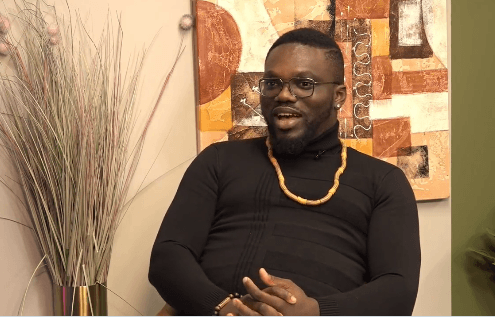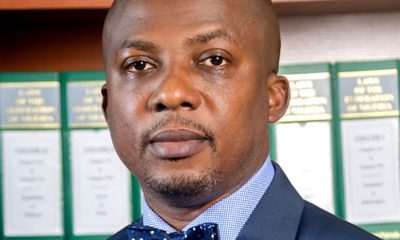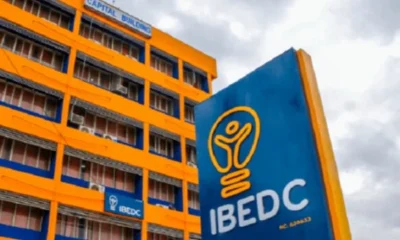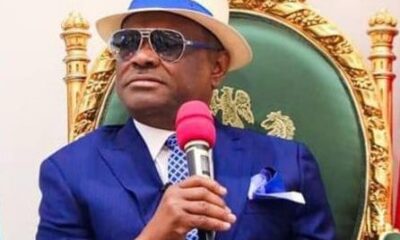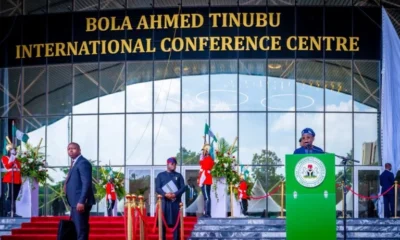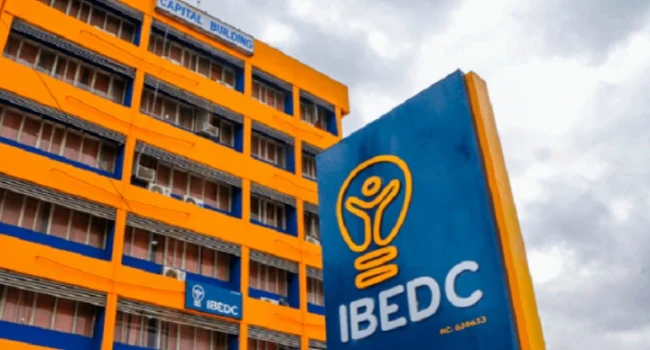The Royal Courts of Justice in the UK has found David Hundeyin, a self-styled Nigerian investigative journalist, guilty of libel and ordered him to pay £95,000 in damages to Charles Northcott, a BBC journalist whom Hundeyin made serious allegations against in his article titled “Journalism Career Graveyard.”
Hundeyin had accused Northcott of using his position as the director of the documentary Sex for Grades to obtain sexual favours from Kiki Mordi, the Nigerian Emmy-nominated journalist who appeared as the on-screen reporter for the BBC’s investigation into sexual exploitation in Nigerian universities.
“I accept C’s evidence that D’s libel has had a very serious impact on him both professionally and personally and caused him serious harm and distress. His witness statement adopts and develops the particulars of harm pleaded in the PoC, and I accept both in their entirety.
“The court awards C £95,000 damages, including aggravated damages. This is an appropriate sum to compensate C for the damage to his reputation caused by D and to vindicate his good name; and it takes appropriate account of the distress, hurt and humiliation which D’s false and defamatory publication has caused him, as well as D’s aggravating conduct,” the court document read in part.
The court also instructed that the relevant part of Hundeyin’s article be removed by the website operators, as it was deemed offensive. The judgment was passed on October 8, 2024. Northcott, the complainant, was represented by Ms. Wilson, while Hundeyin was neither present nor represented in court. The court noted that the judgment was issued in Hundeyin’s absence.
In 2019, Mordi, a freelance journalist, worked with the BBC to produce a 54-minute documentary Sex for Grades, which exposed how some lecturers at Nigerian universities exploited female students by demanding sexual favours in exchange for academic advantages. Mordi collaborated with Northcott and other journalists on the project.
Three years after the documentary’s release, Hundeyin published his article, Journalism Career Graveyard, in which he accused Northcott of having an inappropriate sexual relationship with Mordi and of favouring her to work on the documentary, while sidelining and deceiving Oge Obi, whom Hundeyin claimed was the true mastermind behind the BBC documentary.
In September 2022, Hundeyin shared the article on X (formerly Twitter), which quickly went viral. The article and associated tweets garnered substantial traction. Northcott reported that the post received over 40 million online impressions between September 27 and October 31, 2022.
“I worked with a colleague to run an analysis of the defamatory Article, and its associated hashtags and tweets by Mr Hundeyin, to see how far it had spread between 27 September and 31 October 2022. This analysis suggested the content had received more than 40 million online impressions during this period (which are calculated by tracking the total number of times the content was displayed across Twitter on users’ feeds and on search results). A large percentage of these would have been abroad, but a very significant proportion of Mr Hundeyin’s followers are in England and Wales. He was educated here, has been invited to speak publicly here … and he’s launched two books here – which are sold in British bookstores,” Northcott stated.
Following the article’s publication, Hundeyin posted further comments on X, tagging Mordi and daring her and others to sue him if they took issue with his expose. One of his posts read: “Then why don’t you sue me for categorically stating that you had sex multiple times with @CNorthcott1 in the course of producing that documentary and that this formed the sole basis of your fraudulent ‘career’?”
In another post, he wrote, “As for the people who are constantly threatening ‘legal steps’ because my stories have exposed their true nature to their international donors, NGOs and state actors, here is @WestAfricaWeek’s address. If you don’t sue me, you are all bastards. I double dare you…”
Hundeyin also shared a video of Northcott and Mordi climbing onto a statue at Trafalgar Square, captioning it: “Hi @kikimordi. I’m sure you never thought this video of you and @CNorthcott1 would ever surface, but that is why real journalism will never die when people like me are around. Your ‘career’ is over, you glory hunting, honey trapping fraud!”
Northcott sued Hundeyin for libel, arguing that his actions had severely impacted his career and caused significant harm. The court ordered Hundeyin to remove the article, but he ignored the order.
The court noted that the video shared by Hundeyin did not provide any evidence to support his allegations of an inappropriate sexual relationship. It also highlighted that Hundeyin’s conduct after publishing the article, which included trolling and persecution, was aggravating and had caused significant distress to both Northcott and Mordi.
“All of D’s behaviour post-publication comfortably falls within the principles in relation to aggravated damages that I outlined earlier. D, having seriously libelled C, then embarked upon a campaign of trolling and persecution in a manner calculated to cause C and Ms. Mordi maximum distress and damage. Moreover, he has failed to take down the Article as ordered by this court in July,” the court’s statement concluded.

 BIG STORY2 days ago
BIG STORY2 days ago
 BIG STORY3 days ago
BIG STORY3 days ago
 BIG STORY21 hours ago
BIG STORY21 hours ago
 BIG STORY3 days ago
BIG STORY3 days ago
 BIG STORY2 days ago
BIG STORY2 days ago
 BIG STORY3 days ago
BIG STORY3 days ago
 BIG STORY2 days ago
BIG STORY2 days ago
 BIG STORY3 days ago
BIG STORY3 days ago




